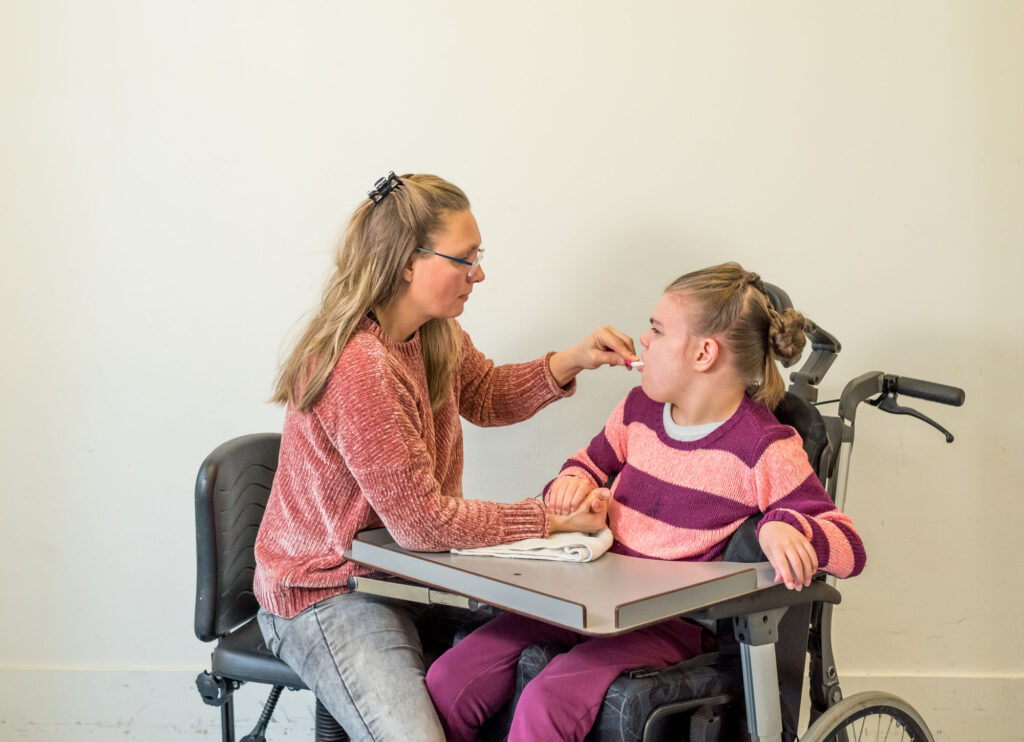
As an NDIS provider, we will play an important role in improving the quality of life for disabled people by continuing to provide disabled people with access to a range of disability support services. Such as including rest services as an integral component in its structure.
What is Respite Care?
Respite care is a service intended to provide short-term relief to primary caregivers and people with disabilities. We recognise that respite care can help NDIS participants foster independence, improve general well-being, and build more inclusive communities.
Respite care is temporary assistance provided to people with disabilities and their primary caregivers. The program aims to provide primary healthcare providers with respite from the daily obligations and constraints they experience, thereby enabling them to replenish their energy reserves and maintain their health and well-being. Individuals with disabilities are allowed to participate in various activities, build social relationships, and enjoy a sense of freedom while receiving respite care.
The majority of respite care services in Australia are provided by National Disability Insurance Scheme (NDIS) providers. The NDIS provides customised break time options that prioritise participant needs, encourage individualised assistance, and encourage engagement in meaningful and enjoyable activities.
Promoting Independence
Through the provision of temporary assistance, people with disabilities are allowed to engage in new activities, develop important life skills, and navigate their environment with a greater degree of independence. We as respite service providers will tailor our NDIS services to accommodate each participant’s needs and preferences, thereby creating an atmosphere that encourages self-expression and personal development.
Enabling Personal Growth
Additionally, respite care has the potential to serve as a platform for the improvement of many skills. Participants have the opportunity to participate in activities that can improve their cognitive, social, and physical capacities, thus making a positive contribution to their holistic personal growth and development. This not only allows individuals to increase their independence but also increases their self-confidence and ability to adapt to difficulties in life.
The impact of respite services extends not only to people with disabilities but also to their primary caregivers. Providing services to individuals with disabilities can place a significant mental and physical burden on caregivers, resulting in caregiver burnout and increased stress levels. Respite care provides caregivers with a brief respite, allowing them to rest, rejuvenate, and look after their well-being.
The importance of addressing caregiver burnout cannot be denied, as it has a direct impact on the quality of services provided to people with disabilities. When caregivers receive support and nurturing through respite care, they can continue their caregiving responsibilities with revitalised energy and a heightened sense of positivity.
Focusing on Creativity
Individuals with disabilities often benefit from opportunities to develop their creative side through participation in therapeutic activities provided by respite care programs. This may include painting, making music, or crafts. Participating in activities like these that involve creativity can provide a feeling of accomplishment and improve self-esteem.
Creating Social Connections
People with disabilities often experience difficulties in social isolation. NDIS participants have an incredible opportunity to connect with their communities, create meaningful relationships, and take part in social events while they receive respite care. Respite care makes it easier to create social connections, which is important for mental and emotional well-being. These connections can be made through activities such as joining a local club, attending community events, or simply spending time with friends.
Inclusive Society
Respite care empowers NDIS participants, advancing the overarching goal of fostering a more inclusive society. By providing people with disabilities with the resources and assistance necessary to live meaningful and fulfilling lives, we are making progress in eliminating social barriers and challenging preconceived notions related to disability.
Respite care services further contribute to increasing knowledge of the many qualities and talents possessed by people with disabilities. The engagement of more individuals with NDIS participation in diverse social settings supported by respite services serves to challenge existing prejudices and encourage the development of more inclusive and tolerant societies.
Boosting Physical Health
Most respite care services often include some type of physical resistance training. These kinds of physical interactions, from organised sports to recreational activities, may be enjoyable for NDIS participants, while also making a major contribution to their overall health and sense of well-being. But of course, it still takes into account the unique needs of NDIS participants.
Respite care includes more than just a break for caregivers who feel overwhelmed. Respite services serve as a valuable resource in the continuum of disability support services. The benefits of this service go beyond providing temporary respite for caregivers but also catalyse to encourage independence, improve well-being, and encourage social participation among people with disabilities. By recognising the importance of respite care services, together we can contribute to the development of a more promising future for NDIS participants.



